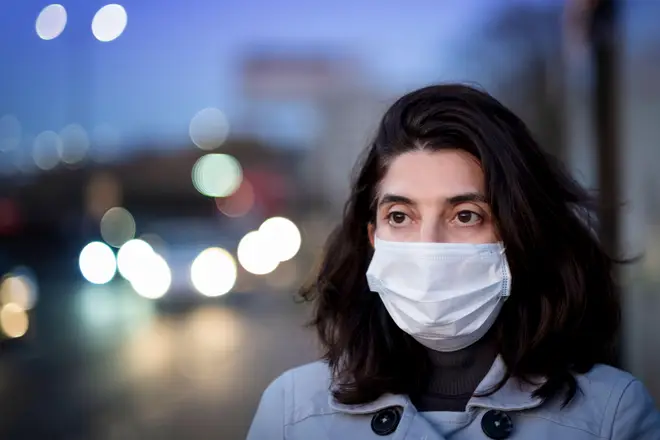
Iain Dale 7pm - 10pm
12 July 2021, 10:02 | Updated: 29 November 2021, 19:01

The Prime Minister is expected to announce the legal requirement to wear a face mask in England will be scrapped from July 19.
This article is now out of date - please refer to this article for the latest rules.
Prime Minister Boris Johnson will host a Downing Street press conference at 5pm on Monday as he announces the lifting of all remaining coronavirus restrictions'
The PM has said it will be a matter of "personal responsibility", while transport operators and places such as shops are likely to decide their own policy on the issue.
Explained: What time is Boris Johnson's Covid press briefing today? And what will he say?
Almost all the remaining Covid restrictions in England will be removed on July 19 if the Prime Minister confirms the move on Monday afternoon.
The legal requirement to wear a face-covering is due to end but official guidance will say they should still be worn in some settings as a voluntary measure.
Vaccines minister Nadhim Zahawi said on Sunday: "The guidelines will be very clear on things like mask-wearing. There's an expectation of people to wear masks indoors, in crowded places, on public transport."
Read more: Health Minister will still carry mask even when legal measures lifted
The British Medical Association (BMA), which represents doctors, says there should be an "ongoing requirement" to wear a mask in enclosed public spaces, such as public transport, shops and healthcare settings.
Dr Mike Tildesley, from the University of Warwick and a member of the Scientific Pandemic Influenza Group on Modelling (Spi-M) group, said on Monday there had been "mixed messaging" over face masks from the Government, even in the last few days.
"I think it's quite confusing actually for people to know what the right thing to do is," he said. "I think all that we can do is take a sort of appropriate approach where we look at the situation and sort of weigh up the risk ourselves and I hope that enough people do that going forward that we don't see a big surge."
Other experts appear divided on whether people in England should be asked to continue to wear face masks after July 19.
Paul Hunter, professor in medicine at the University of East Anglia, said he thought lifting face mask restrictions was OK, though people who are vulnerable may wish to take extra care.
Meanwhile, Robert Dingwall, professor of sociology at Nottingham Trent University, said it makes sense to make them voluntary, adding: "The benefits of masks have always been uncertain because the quality of the evidence in both directions is so weak."
But Dr Laurence Aitchison, from the department of computer science at the University of Bristol, said: "Our research has shown mask-wearing reduces the spread of Covid-19 by around 25% if everyone wears them."

How to make your own face mask
Yes. Research suggests that face coverings worn over the nose and mouth reduce the spread of coronavirus droplets from coughs, sneezes and speaking.
The main purpose is to protect others from Covid, but there is some evidence they also protect the wearer.
One Royal Society report last summer found that the use of cotton masks was associated with 54% lower odds of infection in comparison with the no-mask groups, when tested in a healthcare setting.
In another study, published in the Proceedings of the National Academy of Sciences, scientists calculated that wearing face coverings prevented more than 78,000 infections in Italy
between April 6 and May 9 2020, and more than 66,000 infections in New York City over just a few weeks.
A report recently published by the Royal Society suggests that even basic homemade face coverings can reduce transmission if enough people wear them when in public.
The study, based on mathematical modelling, showed that if an entire population wore face coverings that were only 75% effective, it would bring the reproduction number (the R) from 4.0 to under 1.0, without the need for lockdowns.
Ideally, face coverings should be made of multi-layers of high quality cotton.
People are advised to sanitise their hands before putting one on and removing it, and to wash masks daily.
When wearing a face covering, it should cover the mouth and nose, with no gaps.
Many experts believe face masks are better seen as part of a package of measures, which includes things such as social distancing.